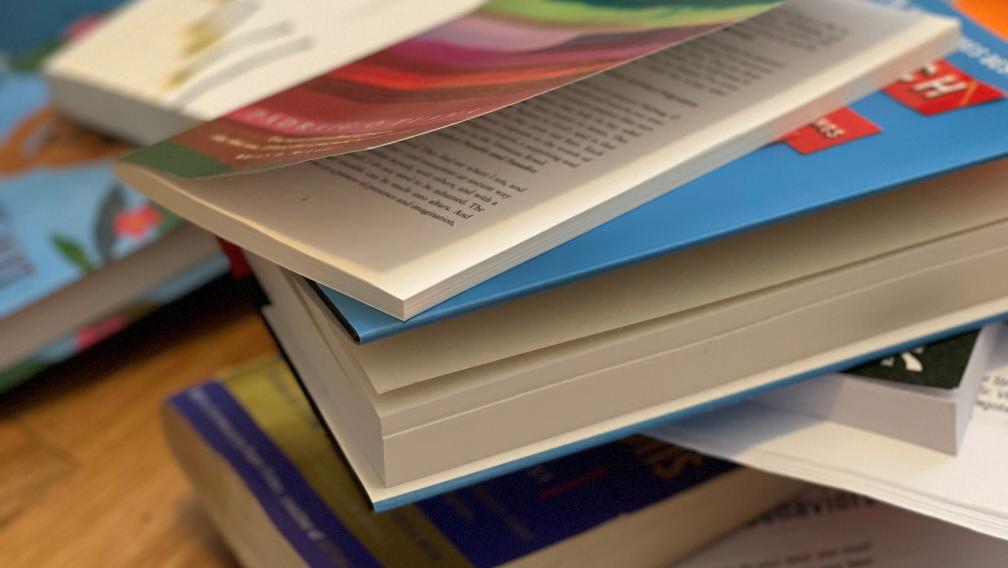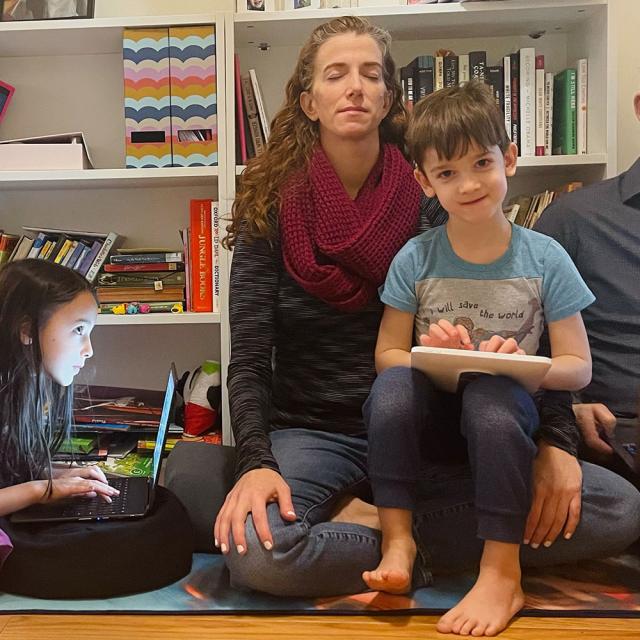In a few short days, you can tune in to join me for a casual, pragmatic meditation retreat offered by Trinity Retreat Center. The idea for this retreat was born of the harrowing requirements of this past year. Our respite spaces—our homes—have been forced to fill all the functional needs of our lives; they have become, for many, our offices, our churches, our schools, our daycares, and our gyms too.
I don’t know about you, but the blur of needs in such a small space and the ambient and personal stress of the pandemic has made maintaining a meditation practice seem out of reach— even more so, starting a meditation practice.
It’s tough out there. I asked a friend recently how he was doing. “Big Yikes,” he texted. As I was grousing about another strange and frustrating Zoom call, my spouse put his hand on my shoulder and said, “It’s just that everyone, every single person you talk to, is doing poorly right now.” I hold on to that wisdom and it has served as my primary compassion practice. These simple meditation practices can help you build some spiritual muscle memory, the equivalent of that gentle hand on your shoulder. In the rush of the coming transition out of quarantine life, we will need to remember to press pause on our immediate reactions. In my experience, confirmed by mountains of research, even a slight slowing of our emotional reaction time is transformative.
Here is what we will not do at the upcoming meditation retreat. We will not sit in silence for longer than ten minutes. We will not discuss theory at length. We’ll work with what we have, even with the blaring music of Brooklyn and car alarms and cartoons in the background.
I had a hilarious and detailed plan with my kids to demonstrate for retreatants via video how we’ve worked with interruptions over the past year and the practices we’ve liked. Dear friends, it did not work, not even a little bit. The kids would forget I was recording, and it was complete mayhem. You know how sometimes kid mayhem can be adorable? This wasn’t. Instead, it was an object lesson for this retreat. Scripted, Powerpoint-worthy intentions are grand, but what good is a practice that requires a stage manager and executive assistant? We need a practice that does the dishes, that understands common core math, that always brings a first-aid kit and extra water for her fellow protesters.
A famous, elder meditation teacher named Ruth Denison led the first silent retreat I attended many years ago. She was having none of our serious vipassana energy. Practitioners would gather in the main hall for sessions six times a day, and as we sat in silence, she would begin talking loudly from the other room as she slowly entered and set herself on the dais. A few students felt distracted by her chatty style and complained to the staff. Sometime later, Ruth joined us in the hall even more rambunctiously than usual. She called out in her thick German accent, “I heard some of you think I talk too much. Oh. I’m sorry. Am I ruining your Samadhi?!” Samadhi, or Enlightenment, is something none of us in that room were in danger of experiencing that day, I promise you.
While a little snarky, I have always kept this teaching close to my heart. Often what is happening during my meditation is not so precious that it cannot withstand an interruption. I can finish the argument I’m having with my coworker in my head some other time. I have to trust that I’ll remember to buy bananas later. The interruption, instead of an annoying distraction, serves as the object bringing me back into focus.
Don’t prepare. Don’t spend another precious second psyching yourself up. Let’s work with what we’ve got.
See you there.


